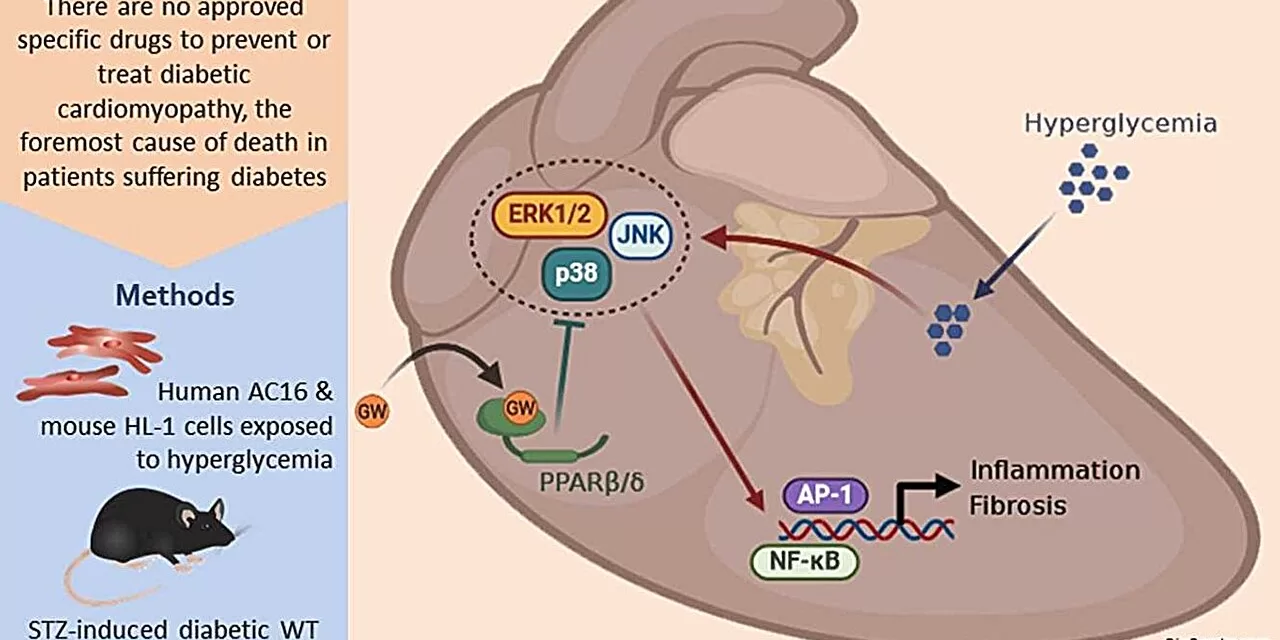A recent study has shed light on a potential therapeutic target for diabetic cardiomyopathy, a serious condition that some diabetic patients develop, which proceeds slowly and cannot be directly attributed to hypertension or other cardiovascular disorders. This often under-diagnosed heart function impairment is a leading cause of death in both type 1 and type 2 diabetes patients, with no specific drug treatment or clinical protocol currently approved.
Published in the journal Pharmacological Research, the study highlights the beneficial effects of activating a protein called nuclear receptor PPARβ/δ, present in all body cells and especially abundant in organs and tissues with high metabolic activity, such as the heart, liver, and adipose tissue.
The research, led by Manuel Vázquez-Carrera and Xavier Palomer from the University of Barcelona’s Faculty of Pharmacy and Food Sciences, UB Institute of Biomedicine, and the Sant Joan de Déu Research Institute, involved contributions from multiple experts across prestigious institutions.
Diabetic cardiomyopathy development is linked to alterations in metabolism, inflammation, fibrosis, and cardiac cell death by apoptosis. The study found that activation of the PPARβ/δ receptor helps slow down inflammation and fibrosis in laboratory animal models and human cardiac cells under hyperglycemic conditions.
PPARβ/δ is the most abundant member of the peroxisome proliferator-activated receptor (PPAR) family in the heart. The study indicates that its activation could be useful for treating several cardiac disorders by preventing inflammation and tissue remodeling.
Diabetes or obesity-induced insulin resistance in the myocardium causes the heart to rely almost exclusively on mitochondrial oxidation of fatty acids, leading to lipotoxicity and increased oxygen demand. This triggers cardiac inflammation and fibrosis through the activation of proinflammatory and profibrotic transcription factors, which in turn drive cardiac remodeling, increasing myocardial stiffness and impairing cardiac relaxation after contraction.
The study revealed that the beneficial effect of the PPARβ/δ protein in diabetic cardiomyopathy is primarily due to its ability to inhibit the MAPK pathway, which is involved in cardiomyocyte inflammation, fibrosis, and apoptosis.
In August 2024, the US Food and Drug Administration (FDA) approved the use of a new selective PPARβ/δ agonist known as seladelpar for treating primary biliary cholangitis, a rare chronic disease affecting the bile ducts. This development indicates growing interest in the research and development of similar drugs for treating diabetic cardiomyopathy.
For more information, see the original study: Adel Rostami et al., PPARβ/δ prevents inflammation and fibrosis during diabetic cardiomyopathy, Pharmacological Research (2024). DOI: 10.1016/j.phrs.2024.107515.












